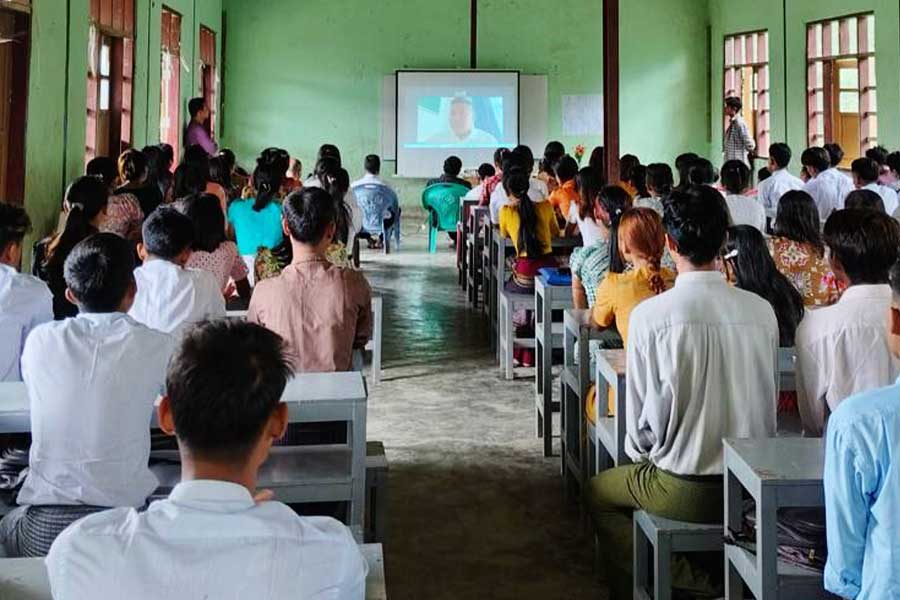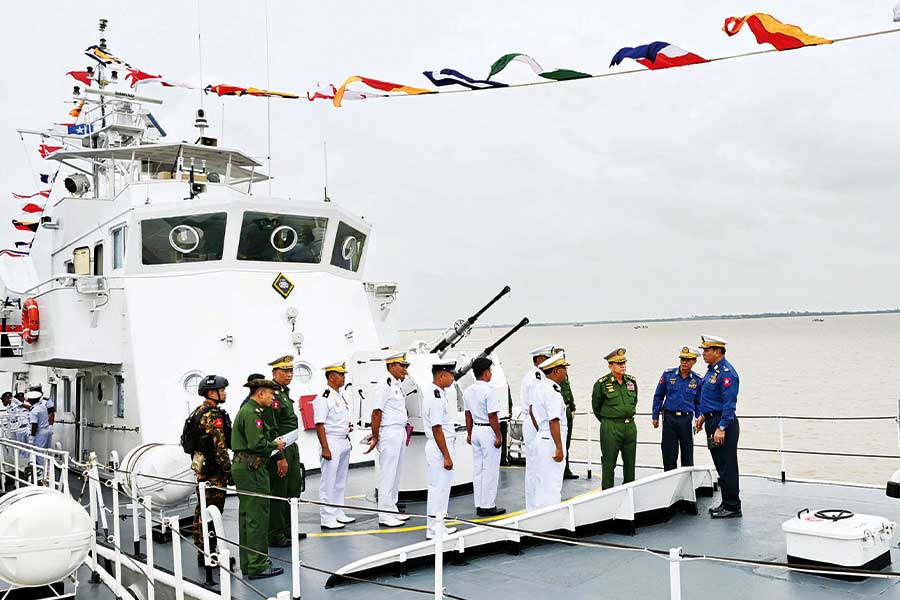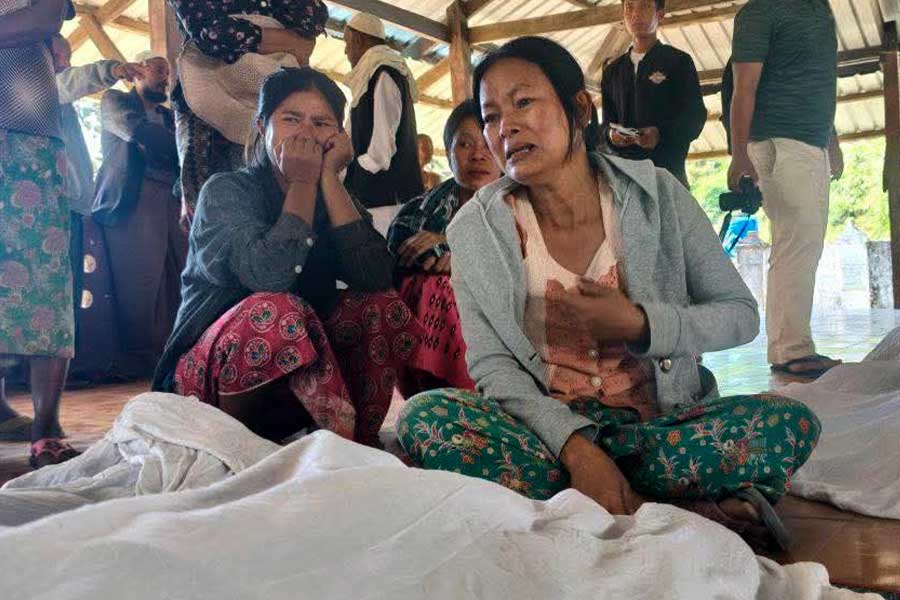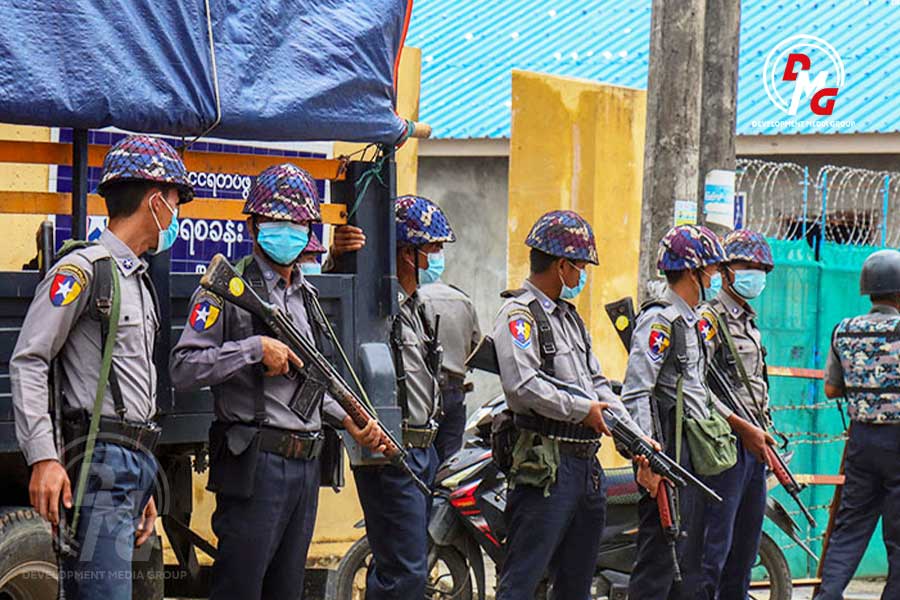- ULA seeks to strengthen public healthcare services in Arakan State
- Junta expands naval presence along Arakan coast to regain lost territory
- Nearly 70 civilians and POW family members killed or injured by junta attacks in Arakan State in one month
- Junta accused of extorting money from detained Muslims in Sittwe
- Weekly Highlights from Arakan State (Jan 26 to Feb 1, 2026)
Fishermen seeking alternative livelihoods as conflict returns to Arakan State
As a result of renewed fighting between the Myanmar military and Arakan Army (AA) in recent months, many fishermen in Arakan State are no longer comfortable going to the rivers to catch fish, and are making the change to other jobs deemed safer.
22 Oct 2022

DMG Newsroom
22 October 2022, Sittwe
As a result of renewed fighting between the Myanmar military and Arakan Army (AA) in recent months, many fishermen in Arakan State are no longer comfortable going to the rivers to catch fish, and are making the change to other jobs deemed safer.
Myanmar’s military regime has tightened travel restrictions in northern Arakan State, where military-AA tensions continue to escalate. Since renewed fighting broke out in August, the junta has imposed travel restrictions on the Ponnagyun-Rathedaung, Agnumaw-Maungdaw and Yaychanbyin-Agnumaw roads.
As a result, fishermen who rely on rivers and creeks for their livelihoods are finding it difficult to make ends meet.
Ko Than Myint, a resident of Sabarhtar Village in Ponnagyun Township, said the fishing industry has lost its appeal amid the heightened threat environment, with former anglers like himself seeking jobs in other fields in order to support their families.
“I have been earning a living as a cargo worker since I stopped fishing,” said Ko Than Myint, 35, who had worked in the fishing industry for seven years.
There are more than 300 households in Sabarhtar Village, and most of the residents rely on fishing for their livelihood.
As the Myanmar Navy’s vessels are making nighttime passages along the rivers in Arakan State, local fishermen are worried about going to work after dark.
“We rely on fishing for our livelihood,” said U Khaing Htoo, a 55-year-old man from Sabarhtar Village who has earned a living as a fisherman for nearly 40 years. He added that these days, however, “We dare not go to the rivers and creeks for fishing due to the Myanmar Navy vessels. Residents in our village are now struggling to make ends meet as they cannot engage in fishing. Many residents in our village currently make a living as odd-job workers.”
The number of internally displaced people (IDPs) in Arakan State and Paletwa Township, Chin State, has increased by more than 17,000 due to the resurgence of fighting between the military and Arakan Army from August to October 11. Among the IDPs are several local fishermen.
In a statement on October 19, the UN Office for the Coordination of Humanitarian Affairs (UNOCHA) said that with those newly displaced, the total number of IDPs from past and present military-AA fighting stands at more than 91,000.
“We are not allowed by the Myanmar Navy vessels to catch fish,” said Ko Maung Than Myint, a local fisherman from Sittaw Village in Kyaukphyu Township.
The issuance of curfew orders under Section 144 of the Code of Criminal Procedure in many Arakan State townships also creates difficulties for fishermen.















.jpg)

